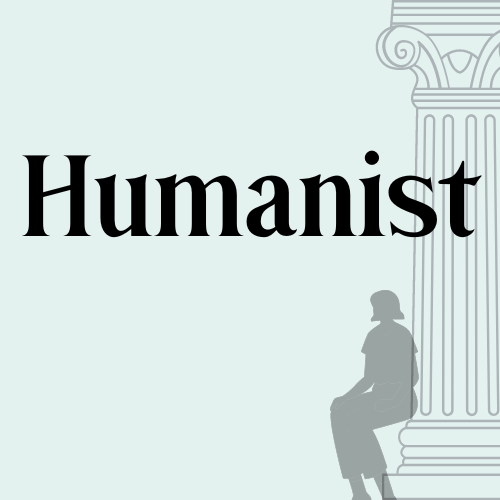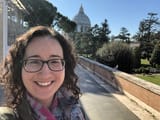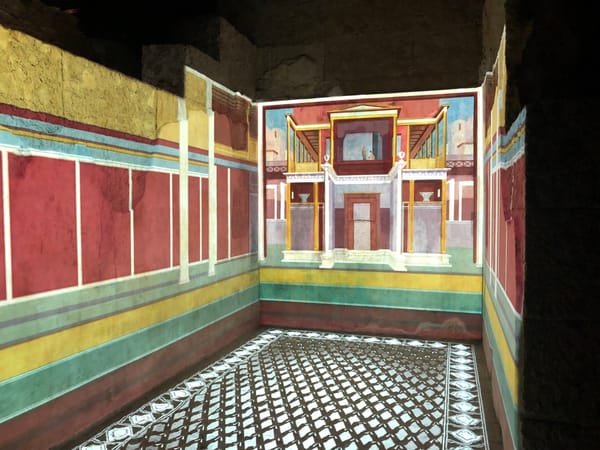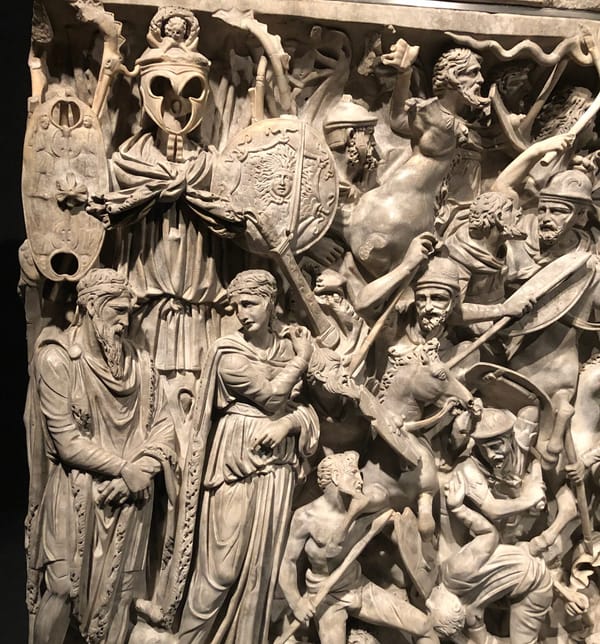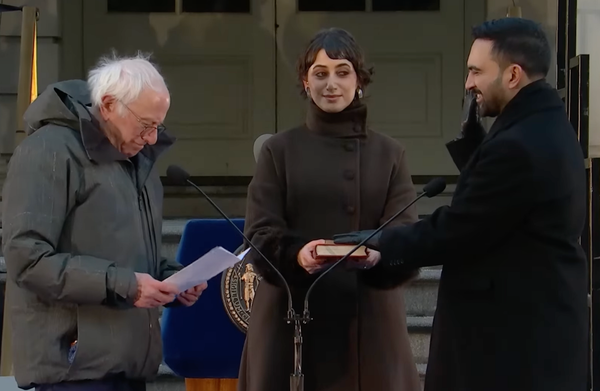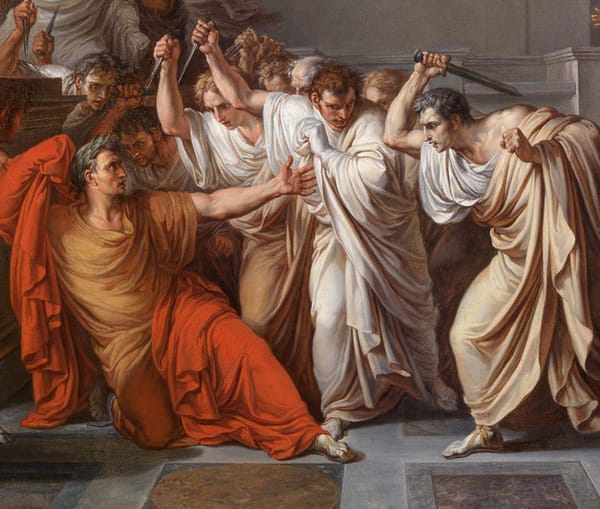Fugitive Pedagogy
There's something to be said for being the kind of educator that authoritarians want to ban, if you can afford the risk.
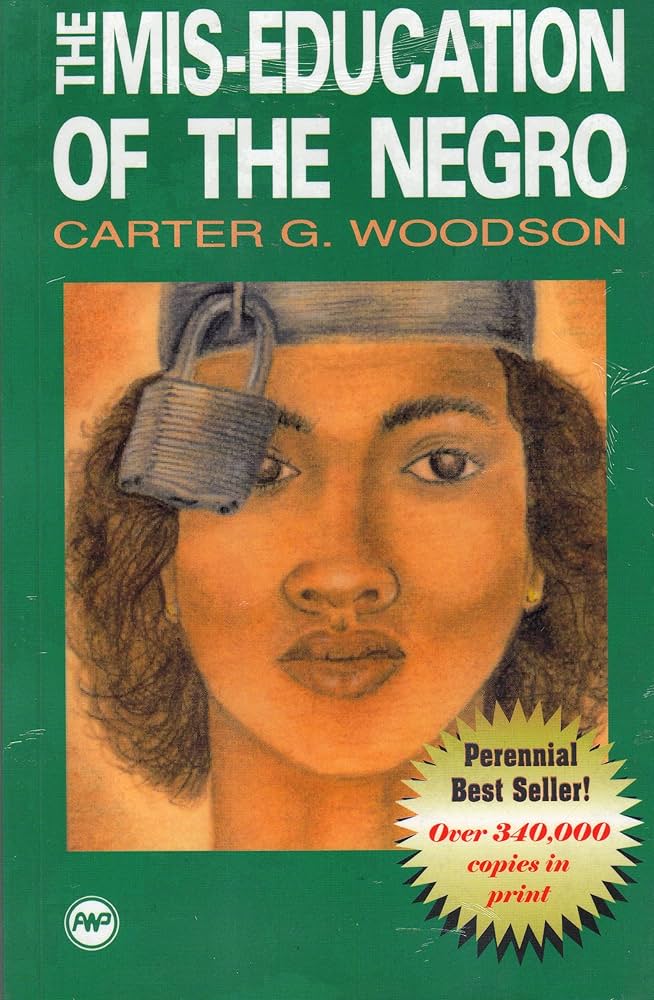
In my senior year in college, I took a class on 20th-century intellectual history with a professor who specialized in the philosophy of Martin Heidegger. When I told friends or family members about the class, they eyed me skeptically: "Wasn't Heidegger a Nazi?" Yes, he was. He was a member of the Nazi party, he gave an address in his role as university rector celebrating the Nazis, and he signed a vow of allegiance to the Nazi party. Heidegger's highly abstract philosophy is still studied by scholars like my professor, but the main thing people – especially non-experts – know about him is that he was a Nazi collaborator.
Academics at the time were either Nazis or refugees, and not only in the sciences. Jewish academics were fired and fled the Nazi regime, as did Jewish students, if they could. Heidegger's one-time student who he was also sleeping with, Jewish scholar Hannah Arendt, later covered the Eichmann trials from New York and wrote books including The Banality of Evil, perhaps thinking partially of her former teacher. Many non-Jewish scholars and students fled as well, not necessarily out of fear that they would be killed themselves, but out of horror at what was happening to their colleagues and students and neighbors, and/or because they refused to participate in any way in a genocidal regime.
Within the United States, academics and educators historically have also been faced with the decision of whether to go along with or to resist an oppressive regime dehumanizing their students and colleagues. Harvard historian Jarvis Givens' book Fugitive Pedagogy details how African American teachers defied antebellum laws that prohibited them even from learning how to read, and later also defied restrictions on segregated schools. He opens his book with the story of Tessie McGee, a Black teacher in Louisiana in 1933-34 who kept the official state curriculum on her desk and Carter G. Woodson's book about African American history hidden in her lap, where she could read it to her students as long as there wasn't an administrator or outside visitor watching.
Education and Mis-education
Dr. Carter G. Woodson was the second Black man to earn a Ph.D. from Harvard, after W.E.B. Du Bois. Woodson wrote The Negro in Our History in 1922 and The Education of the Negro Prior to 1861 in 1915 to catalogue a history that many people assumed did not exist. He taught a course on the latter subject during his one year (1919-1920) as a professor at Howard, before he resigned in frustration with the school's White president, who limited what professors were allowed to teach and restricted their activities. He founded the Association for the Study of Negro Life and History as "an insurgent intellectual network," as Givens puts it, dedicated to creating and exchanging knowledge outside of institutions and their censorship. He also campaigned for the establishment of a national Negro History Week, the forerunner to Black History Month.
Teachers like Woodson played an enormous role in the Civil Rights Movement, a movement against anti-democratic authoritarian rule, even (or especially) when they weren't allowed to teach in schools. Ida B. Wells, fired from her position as a teacher in Memphis for exposing a sex scandal between white officials and Black teachers, became a founding member of the NAACP and an internationally renowned scholar and advocate against lynching. Septima Clark, fired from her position as a teacher in South Carolina because she refused to disavow membership in the NAACP in 1956, became one of the most influential educators of the leaders and organizers behind the civil rights movement.
In my last post, I wrote about how classical "liberal" arts education was defined by Aristotle as "liberating" the mind through broad, multidisciplinary study, thus preparing citizens to live in a society defined by "liberty," i.e. democracy. But education in the United States, while it might have covered a broad range of subjects as Aristotle envisioned, was often far from liberating, especially for students of color. Many schools' faculty and codes of conduct did more to punish and discipline students than to liberate them or help them to grow. Woodson wrote about this phenomenon in the United States, but in the Philippines also, where Woodson had taught, colonial schools limited higher learning so as not to "[unfit] the Filipino for practical work." Residential schools for indigenous children promised to erase the children's cultural heritage, to "kill the Indian to spare the child," but some elders secretly taught their languages to children anyway. And it's lucky for the United States that they did, because their acts of resistance played a major role in defeating the Nazis: Choctaw and Navajo "codetalkers" used their language as a code in the two World Wars to prevent the Germans from figuring out Allied troop movements.
Institutions also limit(ed) the "liberating" effects of education by limiting what children learned. United States curricula often praise(d) the achievements of (upper-class, male) Greeks, Romans, Franks, Germans, and the French and the English, without any mention of the history or achievements of anyone else, including Africans and African Americans. Carter Woodson wrote The Mis-education of the Negro in 1933 to call out the effects of this suppression of history, and Black scholars today still discuss the impacts of continuing mis-education, a form of misinformation specific to classrooms. The 1619 Project had a similar mission, and University of Chicago sociologist Eve Ewing just published Original Sins: The (Mis)education of Black and Native Children and the Construction of American Racism last month, on this topic. (Christopher Rufo and other crusaders against inclusive education argue that teaching African and African American history is mis-education, because they think it makes White kids feel bad.)
White supremacist mis-education was not merely a sign of the times in the early 20th century, but a reflection of racist ideology that held that not everyone was capable of free thought.
Capable of Comprehending Euclid?
Thomas Jefferson was an early and passionate advocate for public education for boys in the United States, and in 1781-1782 sketched out a plan for public education in his book, Notes on the State of Virginia. According to Jefferson’s plan, every boy in Virginia could learn reading, history, writing, and arithmetic for three years for free at a local school. After three years, the few most deserving students would be granted additional education. (Of course, boys whose families could pay tuition could continue to attend school as long as they wanted.)
These schools [are] to be under a visitor, who is annually to choose the boy, of best genius in the school, of those whose parents are too poor to give them further education, and to send him forward to one of the grammar schools, of which twenty are proposed to be erected in different parts of the country, for teaching Greek, Latin, Geography and the higher branches of numerical arithmetic. Of the boys thus sent in one year, trial is to be made at the grammar schools one or two years, and the best genius of the whole selected, and continued six years, and the residue dismissed. By this means twenty of the best geniuses will be raked from the rubbish annually, and be instructed at the public expense, so far as the grammar schools go. At the end of six years instruction, one half are to be discontinued (from among whom the grammar schools will probably be supplied with future masters); and the other half, who are to be chosen for the superiority of their parts and disposition, are to be sent and continued three years in the study of such sciences as they shall choose…
Jefferson’s system is intended to be meritocratic, with limits: while most of the children in Virginia are, he says, "rubbish" or "residue," there are a few who have the talent to benefit from higher education but not the inherited wealth to access it, and it’s in the state’s interest to pay for them to access that education (as long as they are male).
The system is half-baked. A "visitor" will arrive at the school one day a year in search of a single impoverished boy genius; but what are his qualifications as an educator supposed to be? How will he evaluate the boys and choose the one most deserving child? A single math problem? Latin translation? A trivia contest? A spelling bee? Who has the least dirt under their fingernails? And how poor does the kid have to be to be eligible for this one golden ticket? It seems obvious that children whose parents have more education enjoy a huge advantage over those whose parents do not. It should go without saying that children with learning disabilities, or ADHD and neurodivergent kids, have no chance to be designated geniuses.
It's no surprise that Black children are excluded entirely from education in Jefferson's system, and indigenous children presumably are too. Jefferson rationalizes this by arguing that they wouldn't benefit from it anyway. Elsewhere in Notes on Virginia, Jefferson writes that Black people are "in reason much inferior [to White people], as I think one could scarcely be found capable of tracing and comprehending the investigations of Euclid." How comprehending Euclid became the standard for reason, how anyone deprived of education might be able to comprehend Euclid, or whether that is a standard Jefferson applies also to White people, is not explained. This claim is mixed in with other baseless or demonstrably false generalizations about Black people (my students were dumbfounded by reading Jefferson's own words, and they felt betrayed by all the textbook authors who had described him simply as a hero). In fact, Jefferson himself acknowledges that his whole disquisition on this topic is unfounded in anything approaching rigorous scientific inquiry.
This kind of chauvinist thinking is part of the classical tradition as well: Aristotle claimed that women and non-Greeks were deficient in reason, and laborers and craftspeople thought only about how to do their work. So it wasn't just that these groups had no access to liberal education because of their gender, ethnicity, or social class: for Aristotle, there was no point in granting them access, and they did not deserve it, because they were not capable of free thought, whether educated or not.
In Down Girl: The Logic of Misogyny, Australian philosopher Kate Manne describes how patriarchy, sexism, and misogyny act as different mechanisms in a shared system. Patriarchy, she explains, determines the social structures where men have privilege and power; sexism is an ideology that makes patriarchy seem to make sense, by making male privilege seem natural and fair; and misogyny enforces patriarchy by shaming those who violate it. If we apply this framework to Thomas Jefferson's Notes on Virginia, we could say that the enslavement of Africans is a social structure, and racism is the ideology that makes race-based chattel enslavement seem to make sense. In the realm of education, we could say that the restriction of liberal arts education to upper-class white men is a social structure, and Aristotle's and Jefferson's claims about who has the capacity for independent thought and reason represent the ideology that makes this restriction seem to make sense.
Outlaw Education
For people allegedly without the full capacity to reason, women and African Americans in the early USA went to an awful lot of effort to educate themselves in spite of restrictive social structures and even anti-literacy laws. Even Jefferson acknowledges that free Black people sought out liberal education in the USA, and that the very existence of Black poets like Phyllis Wheatley seem to disprove his claims that Black people are not capable of the same level of genius. His circular counter-argument: "Religion indeed has produced a Phyllis Whately; but it could not produce a poet. The compositions published under her name are below the dignity of criticism." I imagine he did feel some cognitive dissonance criticizing her 1773 poem, in which – like many of her contemporaries – Wheatley pointed to the hypocrisy of American patriots who wanted to free themselves from "slavery" to tyrannical England, while enslaving Africans themselves:
No more, America, in mournful strain
Of wrongs, and grievance unredress'd complain,
No longer shalt thou dread the iron chain,
Which wanton Tyranny with lawless hand
Had made, and with it meant t' enslave the land.
Should you, my lord, while you peruse my song,
Wonder from whence my love of Freedom sprung,
Whence flow these wishes for the common good,
By feeling hearts alone best understood,
I, young in life, by seeming cruel fate
Was snatch'd from Afric's fancy'd happy seat:
...Such, such my case. And can I then but pray
Others may never feel tyrannic sway?
In classical antiquity, there were women who pursued education and intellectual work despite structural and ideological obstacles: famous examples like the philosopher Hypatia of Alexandria or the poet Sulpicia come to mind but they were not the only ones. Rosie Wyles and Edith Hall's book on women classical scholars from the Renaissance to 1913 is incredibly eye-opening. In Jefferson's day, many families educated their daughters alongside their sons, until their sons went off to college. Far from showing a diminished capacity for reason, some women with the good fortune to be able to access books showed exceptional determination and intellectual drive – and independence of thought – in pursuing liberal education even as autodidacts, during historical periods when they were not supposed to do so.
If women and people of color couldn't benefit from or comprehend liberal arts education, why was it necessary to ban them from accessing it? Enslaved people like Frederick Douglass taught themselves to read in secret, and were usually punished for it. During Reconstruction, Black schools couldn't grow fast enough to meet the demand, until Jim Crow curtailed and defunded them. Oberlin College became the first university in the USA to admit women in the 1830s, and others followed slowly. Even Oberlin directed them to a non-degree-granting women's program, but women like Lucy Stone and Mary Jane Patterson, the child of a formerly enslaved man, demanded to be enrolled in the regular (men's) course of study and became some of the first women to earn bachelor's degrees. The college tried to give them their own course of study, with lower standards and lower expectations; these women wanted to excel by the same standards applied to their male colleagues, and they did.
Black education in the USA was subversive, transgressive, fugitive from the start, in Givens' account, as well as liberatory:
In its resounding assertion that black people were rational subjects – that they were not simply hands without a head (captive laborers with no capacity for reason) – black education has been a persistent disruption to the known world instituted through racial chattel slavery. This is the assertion embedded in the abolitionist David Walker's claim that "for colored people to acquire learning in this country, makes tyrants quake and tremble on their sandy foundation." It anchors Frederick Douglass's incisive observation that "knowledge unfits a child to be a slave."
Many Black educators rejected the ideology that held that they and their students were "in reason much inferior." bell hooks recalled her beloved Black teachers who encouraged her to excel and to take pride in her heritage, in contrast to the White teachers at her new school post-desegregation, who didn't see any potential in her at all and usually sought to control rather than liberate their students.
Education and freedom
Teaching at a liberal arts institution, or teaching across disciplines like math, science, and literature, is not sufficient to meet the true definition of providing a "liberal arts education," in the sense of an education that frees the mind. Educators also have to believe that all of their students are capable of reason and free thought, and life as free people, because that is the end goal of liberal arts education. Sometimes, that work and outlook run up against institutional barriers; some educators obey and affirm the rightness of the barriers, but others carry on their work of education anyway.
Professors and syllabi and classrooms are not a requirement for liberatory education, although they help. That's why authoritarian dictators so often target academics and universities. There's something to be said for being the kind of educator that authoritarians want to ban, if you can afford the risk. The other end of the spectrum is being the kind of collaborator-educator that authoritarians love, and that later academics usually scorn. There is a middle ground between fugitivity and collaboration, but at a certain point down the road to authoritarianism, the authoritarians stop distinguishing between the middle ground and the resistance. For example, so far, I don't see much difference in the government's treatment of the universities that have cut their DEI programs – like Harvard and OSU – and those that haven't. Similarly, I don't see this administration looking more kindly on universities that had students arrested or expelled for protesting on behalf of Palestine (like Columbia, defunded last week) versus those that didn't. Abolishing the Department of Education will affect all school districts, if not equally, whether they have been teaching Black history or not. So from that point of view, each educator ought to satisfy their own moral code in their own way, after some good hard thinking about what it is. For me, though, it's helpful to think about these historical precedents, and to know that they exist.
Some things I've enjoyed on this topic (please share more in the comments!):
"How the Navajo Code Talkers Worked" episode of the Stuff You Should Know podcast (2018)
Zinn Education Project webinars with Jarvis Givens, Eve Ewing, Jesse Hagopian, or materials from their #TeachTruth campaign
